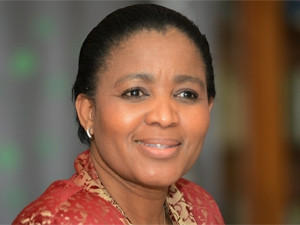
Selling or full privatisation of struggling state-owned company, Broadband Infraco, is still the best turnaround strategy to secure the company's future, say analysts.
Dobek Pater, MD of Africa Analysis, says Broadband Infraco has been loss-making since becoming operational 10 years ago, and continues to be a drain on public finances rather than a contributor.
He explains: "Broadband Infraco should be integrated into Telkom, commercialised, or sold to a willing buyer. I don't think Telkom would necessarily want to pay much for it, if anything, due to the duplication of some of the national infrastructure. However, another player without an extensive national long-haul infrastructure or none at all may be interested."
In the past, it has been noted that government, which owns 74% of Broadband Infraco, is looking at partial privatisation of the state-owned entity. The remaining 26% is owned by the Industrial Development Corporation.
Naila Govan-Vassen, ICT industry analyst at Frost & Sullivan Africa, says the only reason government would opt for partial privatisation is to maintain some sort of control in terms of regulations, protect existing jobs, and retain the legacy upon which the company was founded, apart from the capital inflow.
"Full privatisation could be a better option in terms of capital inflow for the government and maybe a preferred option for the investor," she says.
Crippling finances
Over the years, Broadband Infraco has been in a dangerous financial state, has struggled to fulfil its mandate and previously implored government for more funding.
During the 2015/2016 financial year, the company has worked hard to turn around.
Although there was no profit for the year ended 31 March 2016, Broadband Infraco's loss dipped from R245 million to R91 million.
The state-owned fibre-optic infrastructure firm posted its highest revenue of R452 million, which is R86 million (24%) higher than the R366 million the previous year.

Speaking yesterday at the annual general meeting presentation of the company's integrated report for 2016, CEO Puleng Kwele attributed the additional revenue growth to key customers, new contracts and retention of existing customers.
She also noted for the first time the company had positive earnings before interest, taxation, depreciation and amortisation (EBITDA). Broadband Infraco recorded positive EBITDA of 7%.
"It has been really hard work for us to get that point where we have been driving revenue and we will continue to drive revenue...We will optimise our costs and ensure the R90 million is converted into a positive amount. The mandate from the board is to preserve the value of the company and jobs within the institution," she said.
Lehlohonolo Mokenela, ICT industry analyst at Frost & Sullivan Africa, says although Broadband Infraco is still in the red in terms of profitability in 2016, it is an improvement from its 2015 financial performance.
Mokenela states: "Improvement in margins will be have to come from revenue growth as cutting costs by shedding jobs is seemingly not on the cards. Since 2013, Broadband Infraco has reported an average revenue growth in excess of 20% per annum, but whether this can be maintained in the foreseeable future without further investment is another matter. The company has also been calling for an injection of capital to realise its growth ambitions, and that is likely to come from the private sector."
Potential suitors
It was speculated earlier this year that Broadband Infraco would partner with Telkom and look at how they can collaborate on infrastructure projects. The partnership was deemed part of a rationalisation process.
Telkom and Broadband Infraco remained tight-lipped on plans of any collaboration opportunities and it was later reported that talks between the two entities fell through.
Meanwhile, this week there was further speculation that a potential buyout is on the horizon, with Vodacom fingered as the potential suitor.
In April, Vodacom CEO Shameel Joosub told ITWeb that acquiring an asset like Broadband Infraco was on the company's radar, after it had to call off its R7 billion bid to buy Neotel.
Commenting on buyout rumours, Kwele said she does not have a mandate to sell the company. "I'm not sure what the plans of the shareholders are but I think that kind of question is best answered by the shareholders themselves."
Analysts believe Broadband Infraco would be an appealing target for any of the major mobile players.
As per Broadband Infraco's 2015 annual report, the company owns 14 000km of commercial national long distance fibre-optic network in SA, says Govan-Vassen.
"This is a great asset that most telcos in South Africa would benefit from, both from increasing infrastructure reach and competitiveness in SA. Vodacom, MTN and Telkom would be the top candidates."
Pater warns that an operator that buys Broadband Infraco needs to bear in mind that some of the infrastructure is aging and will need to be replaced in the not too distant future.
"Any operator bidding for Broadband Infraco would have to take that into consideration. If it remains a state-owned company, with 100% government ownership, the need for significant capex in the future will represent a further financial burden on the state and may result in a reversal in the improving performance of the firm."
Share